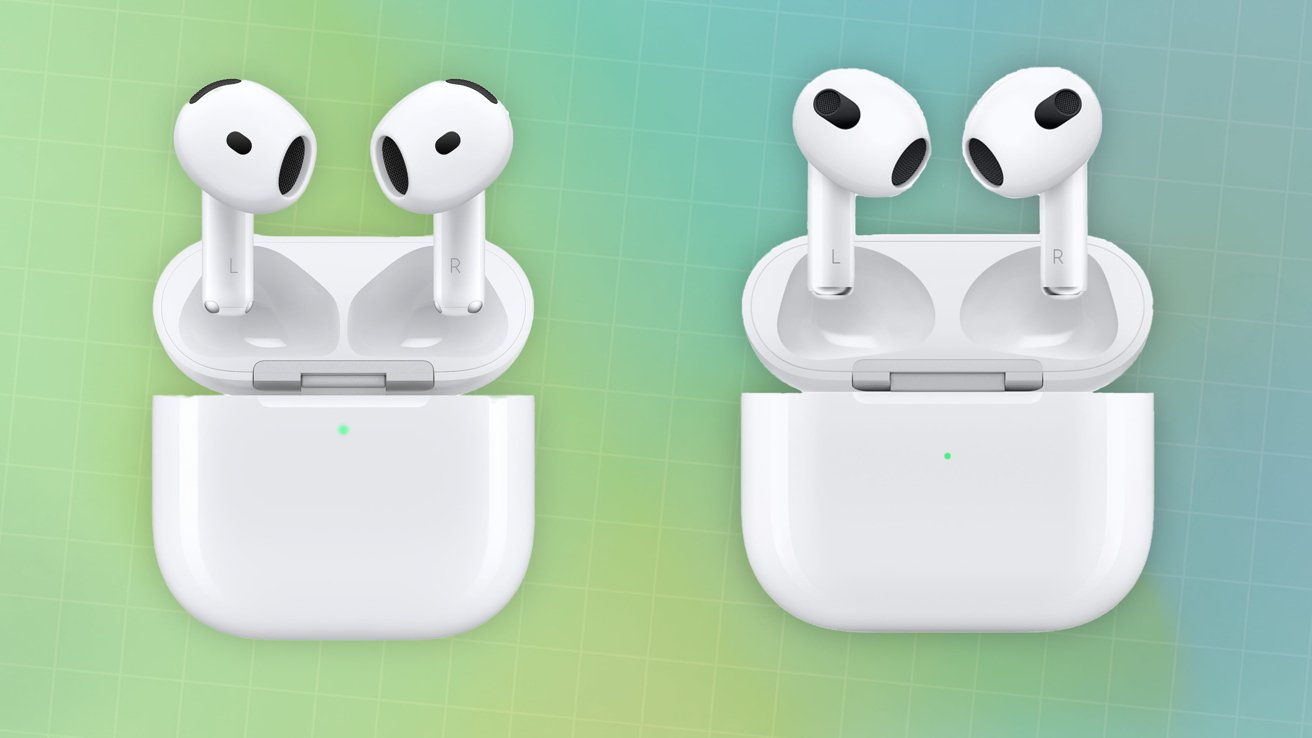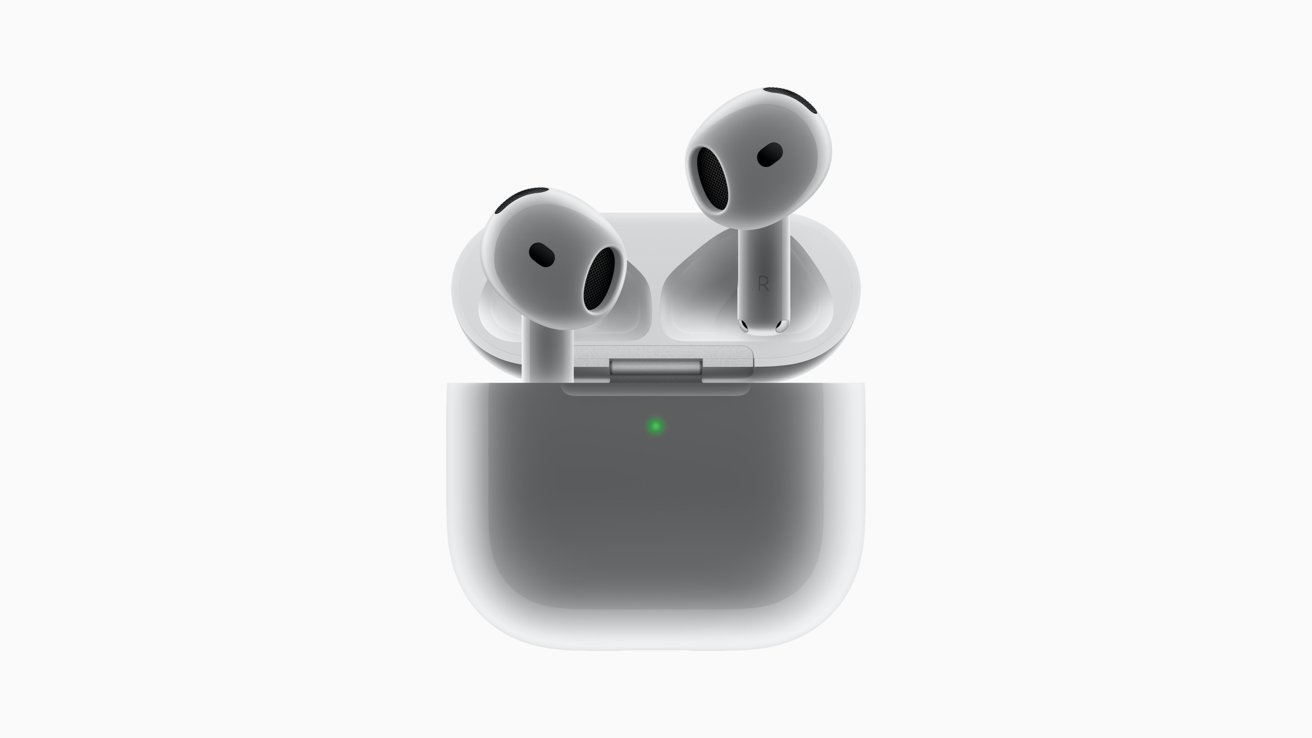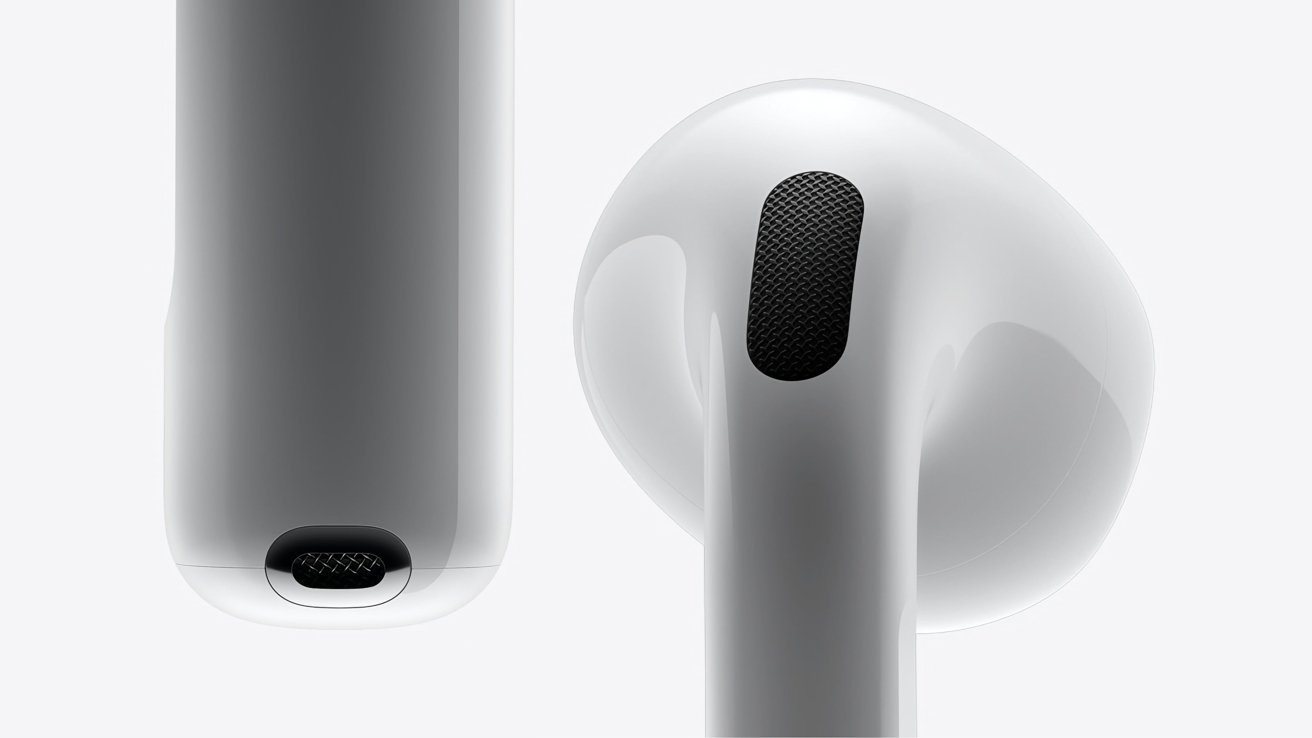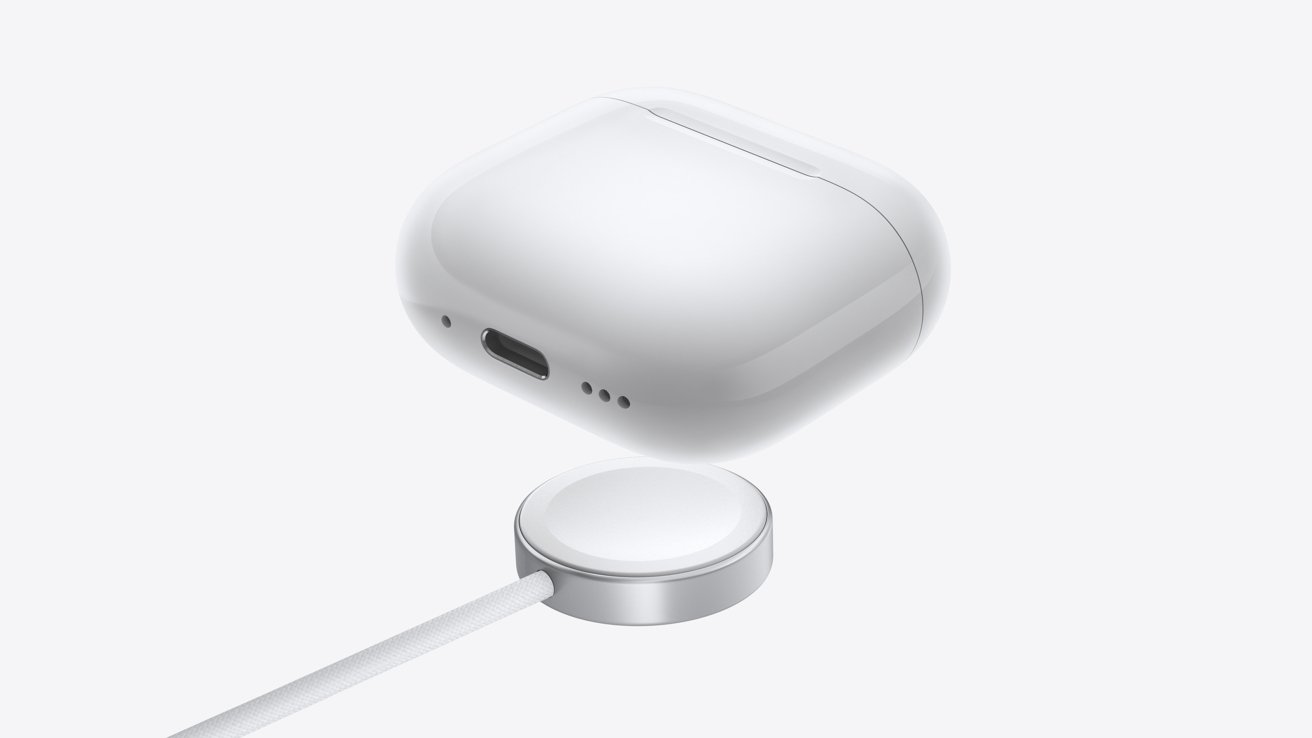
AirPods 4 [left], AirPods 3 [right]

Apple’s fourth-generation AirPods include optional ANC, borrowing from the AirPods Pro line. Here’s how its specifications line up against the AirPods 3.
As part of its iPhone 16 launch at the “Glowtime” event, Apple introduced an update to its AirPods line. An ideal accessory for the iPhone, the AirPods update brings the product line to its fourth generation.
The big feature this time is the potential to add Active Noise Cancellation to the AirPods. A feature that is best associated with the premium AirPods Pro range, this is the first time it’s in Apple’s non-Pro earphone lineup.
Of course, the new model offers other changes when compared against its predecessor.
AirPods 4 vs AirPods 3 – Specifications
| Specifications | AirPods (Gen 4) | AirPods (Gen 3) |
|---|---|---|
| Price at launch | $129, $179 (with ANC) Buy at Amazon | $179 Check prices |
| Dimensions (inches) | 1.19 x 0.72 x 0.71 | 1.21 x 0.75 x 0.76 |
| Weight (ounces) | 0.15 | 0.15 |
| Case Dimensions (inches) | 1.82 x 1.97 x 0.83 | 1.83 x 2.14 x 0.84 |
| Case Weight (ounces) | 1.14 (No ANC) 1.22 (With ANC) | 1.34 |
| Battery Life (earbuds) | 5 hours (No ANC) 4 hours (ANC on) | 6 hours |
| Battery Life (with case) | Up to 30 hours (No ANC) Up to 20 hours (ANC on) | Up to 30 hours |
| Processor | H2 | H1 |
| Connectivity | Bluetooth 5.3 | Bluetooth 5.0 |
| Microphones | Dual beamforming microphones, Inward-facing microphone | Dual beamforming microphones, Inward-facing microphone |
| Sensors | Optical in-ear sensor Motion-detecting accelerometer, Speech-detecting accelerometer, Force sensor | Skin-detect sensor, Motion-detecting accelerometer, Speech-detecting accelerometer, Force sensor |
| Sweat and Water Resistance | IP54 | IPX4 |
| Active Noise Cancellation | Optional | No |
| Spatial Audio | Yes | Yes |
AirPods 4 vs AirPods 3 – Physical design
The third-gen AirPods continued to use Apple’s well-used design of an earbud with a long stem. At 1.21 inches by 0.75 inches by 0.76 inches, they fit in the ear but are very visible to others thanks to that stem.
The white casings are betrayed only by the black side and back vents, as well as the oval meshing for the bit inside your ear canal.
For the new models, Apple has stuck to the same design, but with extremely minor tweaks. At 1.19 inches long, 0.72 inches wide, and 0.71 inches thick, the new earbuds are slightly smaller than the old ones.

AirPods 4 vs AirPods 3: The design of the AirPods 4 hasn’t changed that much.
At 0.15 ounces, each third-gen AirPod earbud is lightweight, a weight matched by the fourth-generation version. However, since they don’t have any silicone tips like the AirPods Pro, you have to be mindful of them potentially falling out of your ear canal.
The third-gen version had an IPX4 rating for the AirPods and the case, meaning it could withstand some sweat and occasional rain. Apple has since upgraded it all to IP54, which adds in dust resistance.
AirPods 4 vs AirPods 3 – Audio features
Powered using the H1 headphone chip, the third-gen AirPods have a custom high-excursion driver and high dynamic range amplifier. Both elements were designed by Apple for improved audio quality over previous editions.
The fourth-gen models have been upgraded to use Apple’s more powerful H2 chip, which is used to drive the new features. Apple also updated the acoustic architecture and added a new low-distortion driver and high dynamic range amplifier to the mix.
For the third generation, Apple also included an Adaptive EQ, as well as Personalized Spatial Audio. The latter also benefits from dynamic head tracking, so users can get more of a 3D feel to the audio experience.

AirPods 4 vs AirPods 3: The design elements are practically identical.
The AirPods 4 without ANC also includes a Personalized Volume feature, as well as voice isolation. The latter can be used to improve the quality of speech picked up from its microphones, so you can sound clearer to other people on a phone call.
The ANC-equipped version of the AirPods 4 have, unsurprisingly Active Noise Cancellation. This is the same feature that the AirPods Pro benefit from, but this time in the open-ear design.
Along with ANC is Transparency, which lets users be more aware of their surroundings by blending in environmental audio. Adaptive Audio automatically switches between the two states, depending on the detected environmental conditions.
Connected to this is Conversation Awareness, which can automatically lower media volumes when others speak to the user.
Apple uses a pair of beamforming microphones as well as an inward-facing microphone in its third-gen and fourth-gen models.
AirPods 4 vs AirPods 3 – Connectivity and control
The third-gen AirPods connect using Bluetooth 5.0 with automatic device switching. A somewhat aging wireless connectivity choice, but it works well enough for the task.
Apple knew this wouldn’t be enough for the fourth-gen, so the newer models use Bluetooth 5.3 instead.
A skin-detecting sensor is used, along with a force sensor, a motion-detecting accelerometer, and a speech-detecting accelerometer, to handle interactions in the third-gen model. This largely centers around presses and holds, with different combinations used to answer calls and manage media playback.
For the fourth-gen, the skin-detecting sensor is switched out with an optical in-ear sensor. The result is ultimately the same, namely working out if the user is actually wearing the earphones.
The third-gen offered “Hey Siri” support for hands-free control. Though a long press of a stem also summoned the digital assistant without the voice prompt.
Users of the fourth-gen can do the same things with Siri, though now they can drop the “Hey” part of the prompt. They also benefit from Siri Interactions, a feature that can allow a nod or a shake of the head to respond to a Siri question, such as whether to answer an inbound call.
AirPods 4 vs AirPods 3 – Battery life and cases
Apple sold the AirPods 3 with two different case choices. The Lightning Charging Case has a Lightning connection, while the MagSafe Charging Case also added in wireless charging capabilities.
Both of the AirPods 3 cases measured 1.83 inches long, 2.14 inches wide, and 0.84 inches deep. They both also weighed 1.34 ounces.
The AirPods 4 has two different cases, depending on whether you went for the basic model or opted for ANC. Both have the same dimensions, with an 1.82-inch length, 1.97-inch width, and 0.83-inch thickness being a slightly smaller package than the third-gen cases.

AirPods 4 vs AirPods 3: The AirPods 4 with ANC case has Qi support, but no MagSafe magnets.
The newer cases are also lighter, at 1.14 ounces for the non-ANC case, 1.22 ounces for the ANC-equipped model.
The weight difference is down to connectivity for the most part. The non-ANC version is recharged using USB-C, while the ANC case uses USB-C or Qi-certified chargers.
The ANC-equipped version even has a built-in speaker, so you can track it down more easily using Find My.
When it comes to battery life, the AirPods Gen 3 offers up to 6 hours of listening time from a single charge, 5 hours with Spatial Audio enabled. You could also get about four hours of talktime too.
The Gen 4 offers up to 5 hours of battery life from a single charge without any use of ANC features, and four hours with. Both variants can manage up to 4.5 hours of talk time with ANC disabled.
When combined with the battery in the Charging Case, The AirPods 3 could get up to 30 hours of listening time in total.
The AirPods 4 can also get up to 30 hours of listening time when combined with their cases, but that ebbs down to 20 hours if you use any ANC features.
Putting the third-gen earbuds into the case for five minutes provided them with about an hour of listening time. It’s about the same for the Gen 4 models.
AirPods 4 vs AirPods 3 – Almost Pro-like
There are a few ways to look at how the AirPods 4 have improved over the AirPods 3.
For a start, the base AirPods 4 offer what could be described as an AirPods 3-style feature set. There are few really meaningful changes at play, save for audio improvements and USB-C on the casing.
The real benefit the AirPods 4’s base model offers is a massive cost saving. The AirPods 3 cost $179 at launch, while the base AirPods 4 sets you back just $129.
That’s a $50 saving on a newer model with fairly comparable features.
Then there’s the AirPods 4 that lobs ANC and Transparency into the package. That brings the price back up to $179 again, regaining price parity with the ANC-less AirPods 3.
Consumers can therefore choose between the considerably cheaper and slightly improved AirPods 4, or pay the same price and get AirPods 4 with ANC.
The AirPods 4 with ANC may actually be the better deal across the entire AirPods family of hardware. You’re getting AirPods Pro features in a device that is most of the way there, but has the main features you want from the premium option.
Indeed, AirPods 3 owners may feel more of a draw to the ANC-equipped AirPods 4 as their next upgrade. Especially if it provides the key benefit of AirPods Pro but without spending an extra $70.
Where to buy AirPods 4 vs AirPods 3
Apple resellers, including Amazon and B&H, are selling both AirPods 4 and AirPods 3.




